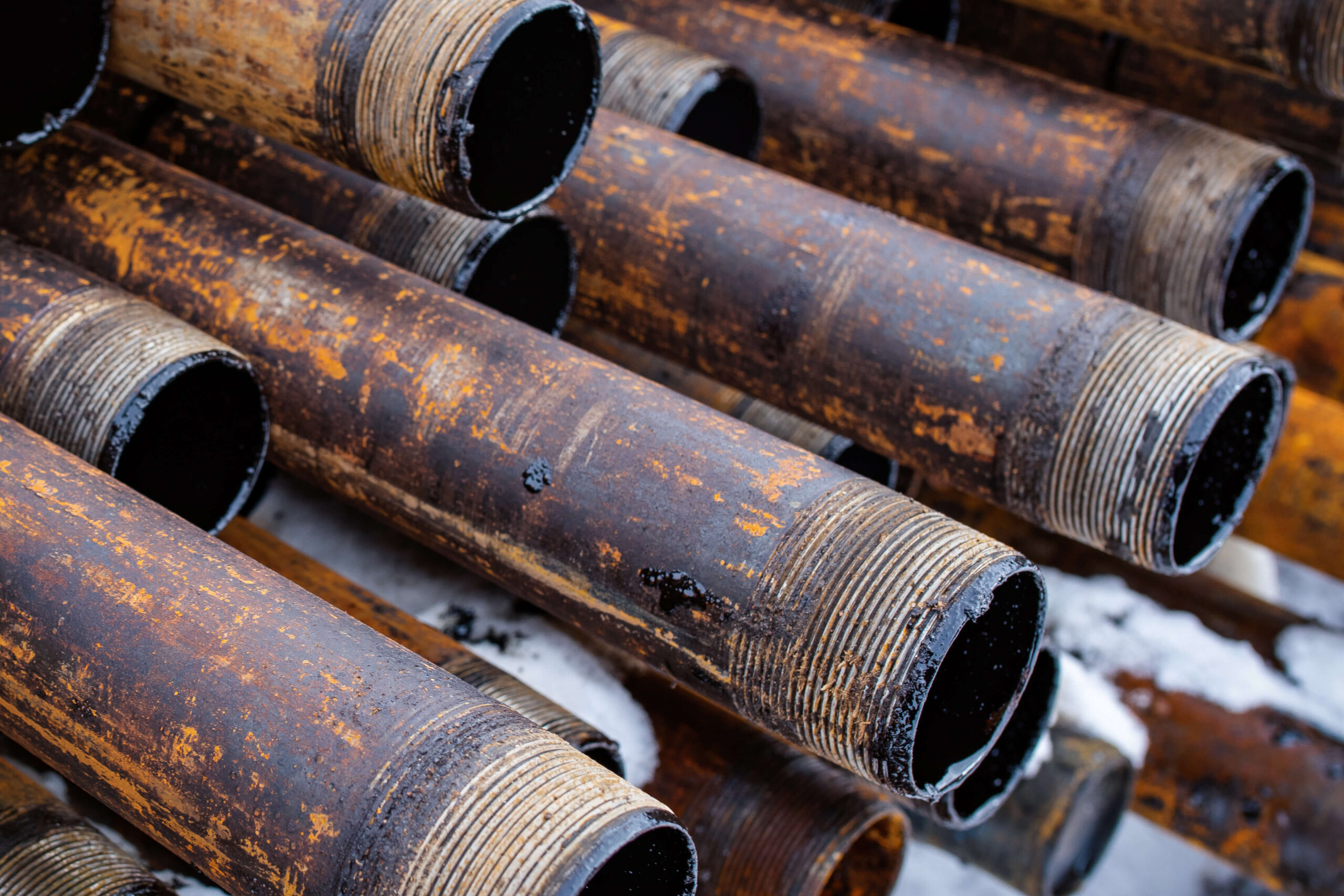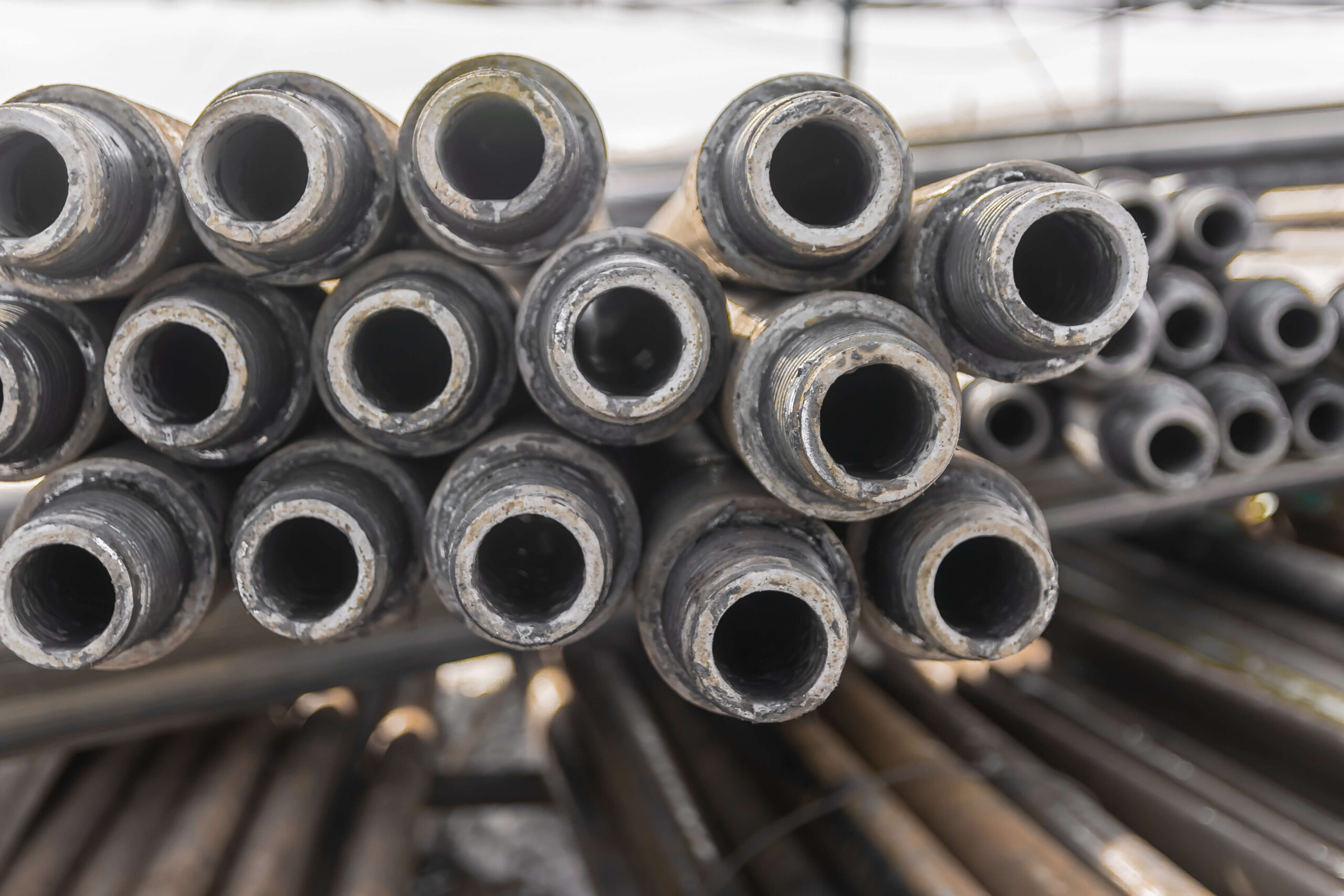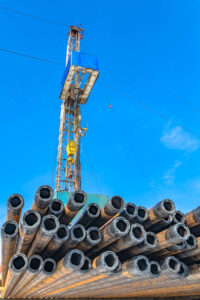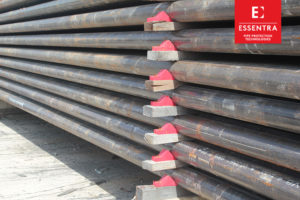Understanding the Importance of Proper Techniques for Pipe Storage
Proper pipe storage is crucial in the oil and gas industry to ensure the safety of workers and the integrity of construction projects. Here are some fundamental guidelines and practices for storing pipes.

Consequences of Improper Pipe Storage
Corrosion and Erosion
It is common practice to store pipes outdoors due to their size and limited storage capacity in dedicated facilities. However, this practice exposes the pipes to various environmental elements, and the primary concern is corrosion and erosion, which can significantly compromise the pipes’ integrity.
Corrosion is a particularly critical issue for pipes, as they are often constructed from materials such as cast iron and steel susceptible to rusting. Over time, corrosion and the gradual erosion of the pipe’s surface weaken its physical strength, increasing the risk of failure during operation or construction projects.
Structural Failure
Improperly storing pipes can also put them under a lot of pressure or lead to damage that weakens them. Any damaged pipe can experience a structural failure after installation if this happens.
In an oil pipeline, for example, the line is sealed and pressurized to help move oil over uneven terrain. Under such strain, a structurally weak pipe can burst, leading to a major oil spill.
Contamination
Another potential problem with improper pipe storage is contamination. Gas pipelines, in particular, need to be very clean on the inside. Otherwise, contamination introduces impurities to the gas that can damage machinery or reduce the potency of the gas.
Contamination can happen in many ways, but the most common is leaving pipes improperly stored and exposed to contaminants. Simple measures to secure and seal the pipes can prevent contamination entirely.
Health and Safety Hazards
Ultimately, all pipe storage best practices are designed to stop two things from happening. First, they ensure that pipes are stored safely so that they are not a risk to the workers or other resources near them on a project. Second, storage best practices ensure that pipes are kept safe and ready to use until installed.
Overview of Pipe Storage Best Practices

Some of the most important parts of your pipe storage system that you should pay attention to include:
Protect Against Collisions
Protecting against collisions is crucial to prevent damage caused by impacts with other pipes. To minimize the risk of collisions and promote safe storage, the following measures should be implemented:
Create physical barriers between pipes to prevent them from bumping into each other. Utilize bumper rings, which encircle the pipe’s body, to protect against sideways collisions with other pipes or parallel surfaces. Implement protection for the ends of the pipes, particularly where the threads are located.
Limit Stack Sizes and Use Stack Assistance

Seal Pipes and Control the Environment When Possible
To effectively safeguard pipes from contamination and corrosion, it is crucial to implement measures that protect them from the elements. Apply a storage compound, typically in the form of a gel, to the outer surface of the pipes. This compound creates a weather-resistant seal, acting as a barrier against rust and other potential issues caused by environmental elements. Utilize thread protectors to cover both the threads and the ends of the pipes. These protectors serve a dual purpose by safeguarding the threads from damage and preventing exposure of the pipe’s interior to moisture.
Benefits of Following Proper Storage Techniques
Implementing proper pipe storage techniques can yield significant benefits. The foremost advantage is ensuring safety within the work environment, and adhering to correct storage practices dramatically reduces the risk of pipes falling, causing workers injuries, or damaging work areas.
Proper pipe storage can contribute to the extended lifespan of your pipes. When pipes are stored correctly, they remain in optimal condition until installation, leading to a prolonged lifespan. This minimizes the frequency of repairs or replacements required over an extended period. By mitigating wear and tear, the likelihood of catastrophic failures in your pipe infrastructure is significantly diminished.
By prioritizing proper pipe storage, your company can achieve enhanced safety, minimize costs associated with repairs or replacements, and maximize the longevity of your pipes. These benefits contribute to the overall efficiency and success of your operations.
Invest in Better Pipe Protection and Storage Resources
Pipe protection and storage tools are an important investment in safeguarding your business operations and the well-being of your workers. When acquiring top-quality resources in the industry, MSI specializes in manufacturing Rhino Tubular Handling Systems. These products are designed to ensure workers’ safety and materials’ integrity.
To obtain the appropriate pipe protection and storage items tailored to your specific requirements, reach out to MSI. Our knowledgeable team will assist you in selecting the right resources to meet your needs.




